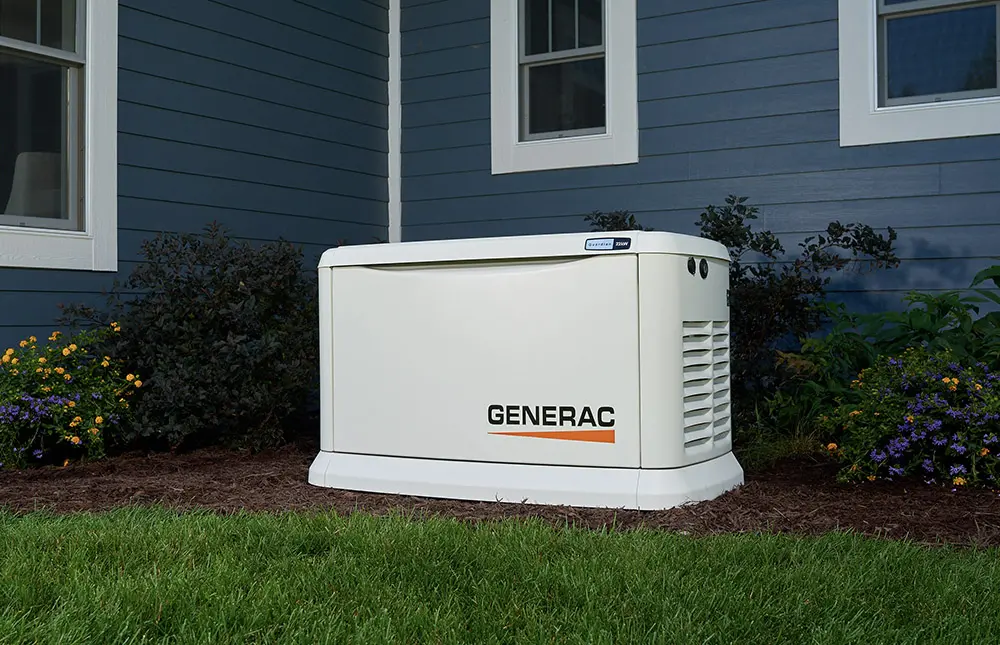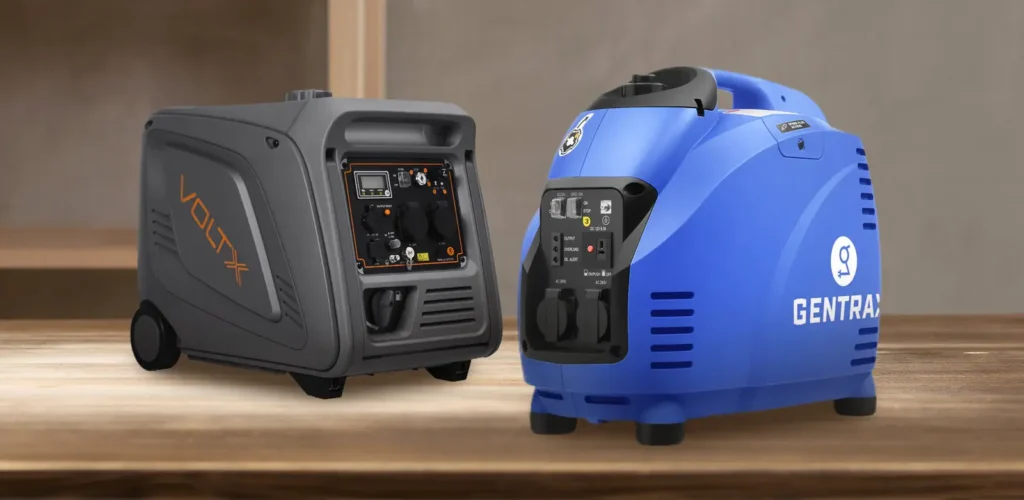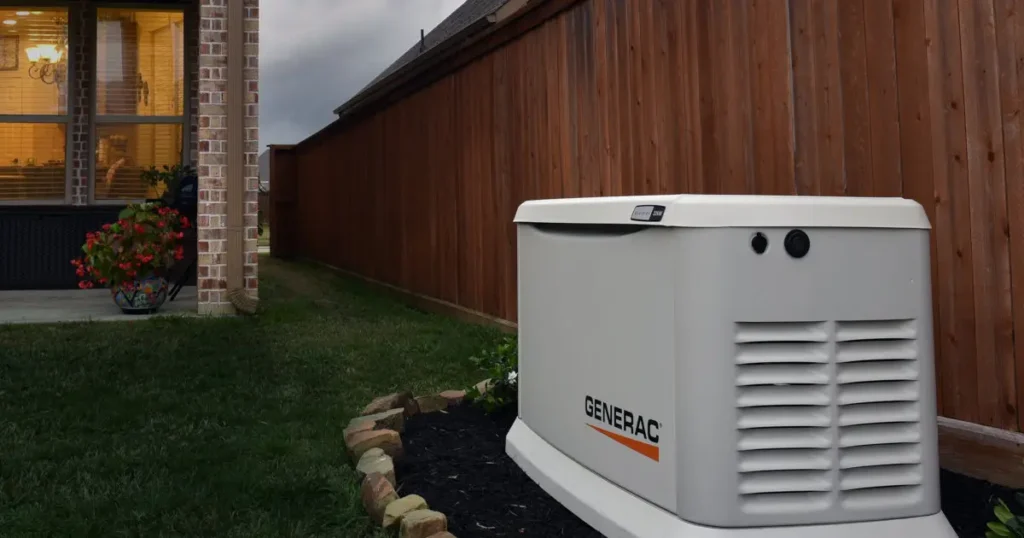Hurricanes can cut power for days or even weeks. Choosing the best generator for hurricane season gives safety, comfort, and peace of mind when the storm hits.
At Grounded Electric, led by Robert “Bobby” Mulholland and Barret Abramow, we help families pick backup power that fits their homes.
Key Takeaways
-
- The best generator for hurricane season depends on your needs, with options including portable, solar, inverter, and standby models that cater to different budgets and power levels.
-
- Most homes need 5,000–7,500 watts for basics, while larger houses may need 10,000 watts or more.
-
- Fuel type changes cost and runtime, with propane or natural gas offering longer use than gasoline.
-
- Safe setup and compliance with codes are critical, so licensed electricians like Grounded Electric are key.
-
- Preparing early prevents shortages and gives peace of mind when a storm hits.
Generator Types for Hurricane Season
Generator Wattage Ranges and Performance
Generators cover a wide range of power. Inverter generators run 800–5,000 watts for small devices, portable generators provide 5,000–17,000 watts for essentials, and standby units start at 7,500 watts and can reach 59,000 watts for whole homes.
Best Portable Generator for Hurricane Season
A portable generator offers flexible backup during hurricane season. It is easy to move and can power fridges, lights, and small devices, or several circuits when connected safely.
Portable generators often run on gasoline, include an electric start, and, while not built for whole-home use, the best portable generator for hurricane season keeps essentials running until power lines are restored, saving you money compared to standby units.
Our Pick – Generac GP8000E
A dependable portable unit with 10,000 starting watts and 8,000 running watts, strong enough for fridges, lights, and sump pumps.

Best Solar Generator for Hurricane Season
Solar power stations recharge from the sun and work when fuel is low after a storm hits. These powered generators are clean, quiet, and safe indoors.
Output is lower than that of gas models, but sufficient for phones, laptops, and medical devices.
Many homeowners combine solar units with a portable generator for hurricane preparedness and broader coverage.
Our Pick – EcoFlow DELTA 1300 Portable Power Station
This solar generator stores around 1,260Wh and delivers enough power for phones, a medical device, or a small fridge during short power outages. It’s quiet, charges via solar panels or a wall outlet, and runs on clean power with no fumes.

Performance Benchmarks for Generator Types
-
- Inverter generators: 800–5,000 watts, quiet, best for electronics.
-
- Portable generators: 5,000–17,000 watts, strong enough for essentials.
-
- Standby generators: 7,500–59,000 watts, whole-home coverage.
Best Standby Generators for Home Backup
Standby generators are the best generators for hurricane season if you want a whole-home backup. Installed outside, they start on their own when the power goes out.
Our Pick – Cummins RS20A
A durable standby unit built to handle central AC, water heaters, and multiple rooms for days or even weeks.
They handle heavy loads like AC, water heaters, and sump pumps. Standby units operate on propane or natural gas, providing longer runtimes with reduced refueling requirements. With Grounded Electric, a standby generator powers your home safely and reliably.

Installation, Codes, and Compliance Standards
Installing a generator must follow safety codes and permits. Units should be UL-certified and meet EPA or CARB rules. Poor installation can cause carbon monoxide danger or feed power back into power lines. Bobby Mulholland and the Grounded Electric team ensure every install is safe and code-compliant.
Inverter Generators: Pros and Cons
An inverter generator produces clean power for electronics such as laptops and medical devices. It adjusts speed to demand, saving fuel and reducing noise. Small and portable, it is good for partial backup.
Downsides are lower output and higher cost compared to basic portables, but inverter units remain great for quiet and stable power.
Generator Comparison Table
| Type | Wattage Range | Runtime & Fuel Use | Best For |
| Inverter Generator | 800–5,000 W | Quiet, fuel-efficient | Electronics, small devices |
| Portable Generator | 5,000–17,000 W | Gasoline or dual fuel | Essentials, multiple rooms |
| Standby Generator | 7,500–59,000 W | Propane or natural gas, long | Whole-home backup, central AC |
| Solar Generator | Lower output | Solar recharge, limited use | Phones, laptops, and light needs |
Choosing the Right Generator Size
What Size Generator Do I Need for a Hurricane?
Size depends on the running watts of your devices. A fridge needs about 600 watts, while central AC may need thousands. Listing essentials ensures your generator can power them safely.
Should You Buy a Generator for Hurricane Season?
Why Backup Power Matters
Generators keep food safe, medical devices running, and news available during outages. They power the appliances that keep your family safe.
Risks of Waiting Too Long
Buying after a storm hits is risky. Stores sell out of portable generators and fuel fast. Standby units take time for permits and installation, so early preparation ensures power when you need it.
Fuel Options and Storage
Gasoline and Diesel
Gasoline-powered generators are easy to find and low-cost. Diesel models tend to last longer and are generally more durable. Both need safe outdoor storage.
Propane and Natural Gas
Standby systems often use propane or natural gas, which remain available when gas stations close. These fuels are clean and need less upkeep.
Safe Fuel Storage Tips
Store fuel in approved containers outside living areas. Rotate gasoline every few months to keep it fresh.
Safety and Maintenance
Placement and Ventilation
Generators must be outdoors and away from windows to prevent carbon monoxide. Never connect a powered generator to house wiring without a transfer switch installed by a licensed electrician.
Testing and Seasonal Service
Test your generator regularly to ensure it works when a storm hits. Change oil, check plugs, and inspect before hurricane season. Grounded Electric offers seasonal service for peace of mind.
Buying and Installation Tips
Why Early Preparation Matters
Buying before hurricane season avoids high demand and low supply. Planning early ensures your installation is completed on time.
Licensed Electrician Installation
Proper installation keeps your home safe and code-compliant. Our team, led by Bobby Mulholland and Barret Abramow, provides safe, expert installs tailored to your home. Call Grounded Electric today to schedule your professional installation and keep your home protected.
Final Hurricane Preparedness Checklist
-
- Pick between portable, inverter, solar, or standby models.
-
- Match generator size to essentials.
-
- Select the right fuel type.
-
- Test and service before hurricane season.
-
- Use licensed electricians for a safe installation.
FAQ About Generators for Hurricane Season
How long can a generator run during a hurricane?
Some models run for several days with refueling. Standby units on natural gas can operate continuously as needed.
Do portable generators power central AC?Do portable generators power central AC?
Most portable models cannot handle central AC. A standby generator is better for that load.
What’s the average cost of a home backup generator?
Installed standby systems usually cost $8,000–$15,000, depending on size and fuel type.



